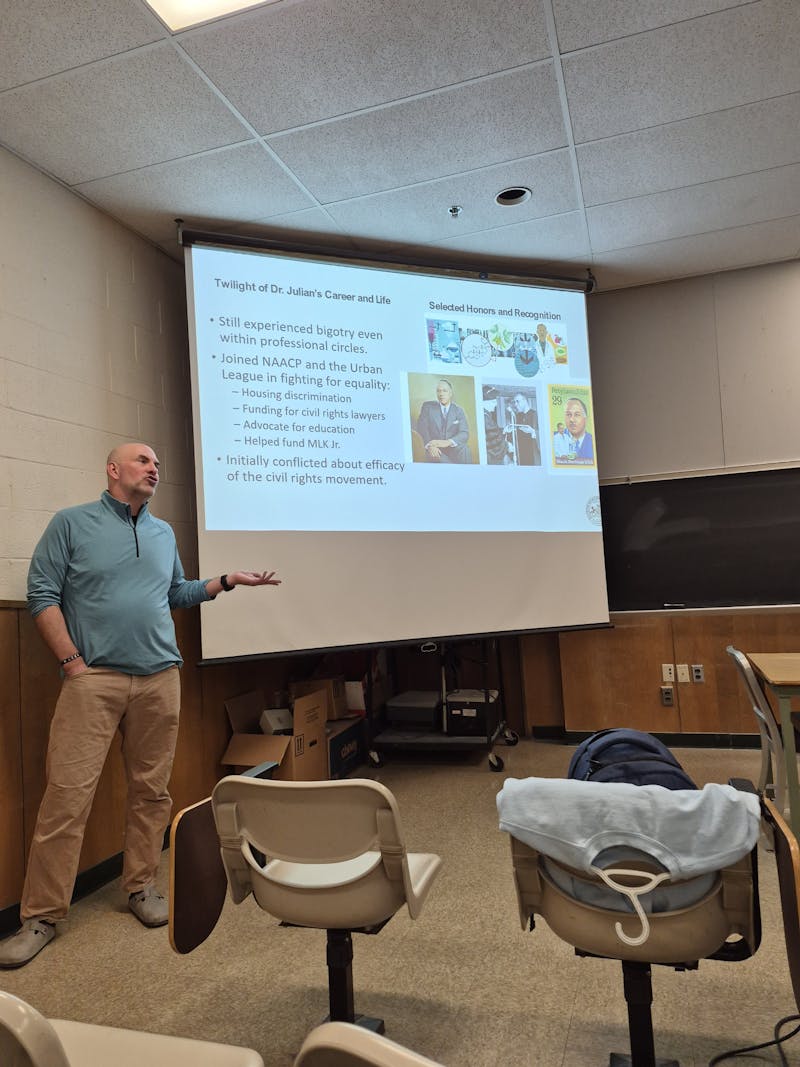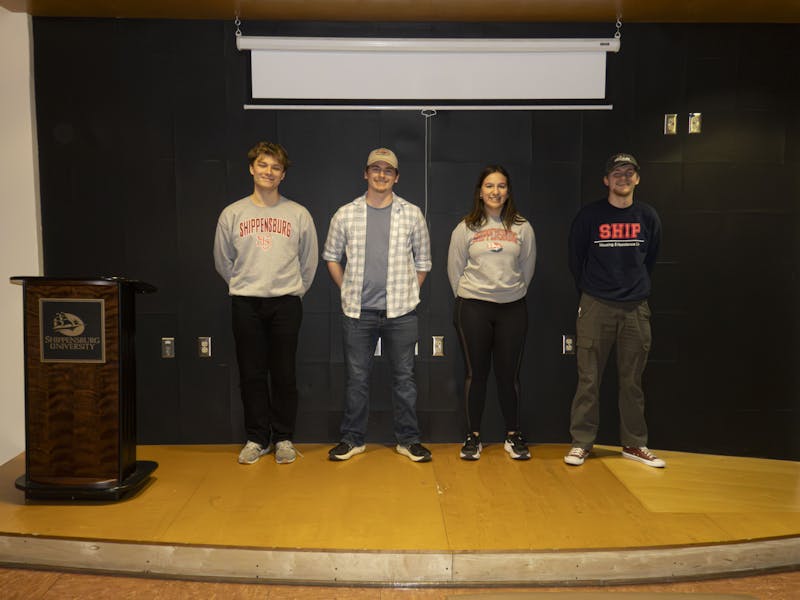A former employee of the Office of National Drug Control Policy within the White House told Shippensburg University students about the dangers of legalizing marijuana in terms of it being an international issue, as well as a personal one.
Stephen R. Johnston spoke in the Dauphin Humanities Center on April 8, to create a dialogue with students to discuss the global implications of the U.S. drug policy. He talked about problems associated with drugs, including heroin, Fentanyl, pain killers, cocaine and marijuana.
The audience, mostly international business students, did not hesitate to ask the questions on their minds. Questions concerning the states’ legislation of the recreational use of marijuana were a prominent feature.
Currently, marijuana is legal in four states: Alaska, Oregon, Colorado and Washington — and many students wondered, why not Pennsylvania? Why not the rest of the U.S.?
Johnston addressed the interest in the new reformation of the popularized drug and did not show a support for more states to legalize marijuana, seeing a danger in legalization. He mentioned that Mexican Cartel members established businesses in the U.S. after marijuana was legalized and continued to work the illegal way by selling it tax-free on the black market.
Johnston did not see marijuana as an innocent drug, but saw through his friends in college that a lazy quality attached itself to the user.
Johnston also recognized the major heroin problem in the U.S. In 2013 there was a 39 percent jump in heroin-related deaths, Johnston said.
The epidemic of pill mills was also discussed. They are a dangerous trend in some privately owned clinics.
Painkillers are a frequent prescription and clinics prescribe these drugs to addicts, which could contribute to the increasing number of opiate-related fatalities in the U.S.
Cocaine is also a drug that could be as aggressive as heroin in addiction and death, Johnston said. The profit potential for drugs like this is too great for criminals to resist.
Another issue concerning heroin discussed by Johnston was the drug Fentanyl. Fentanyl is much like opiates or heroin, having the same effect, and all sharing a high risk of addiction. Johnston stressed that this drug was being cut with heroin and is increasing the profit potential of illegal distributors. The drug has been said to be 50 times stronger than heroin and is a large contributor to the recent fatalities from heroin.
Some students’ questions were left unanswered because of time. However, Johnston was able to provide a professional insight into a serious issue the U.S. is facing.




The Slate welcomes thoughtful discussion on all of our stories, but please keep comments civil and on-topic. Read our full guidelines here.